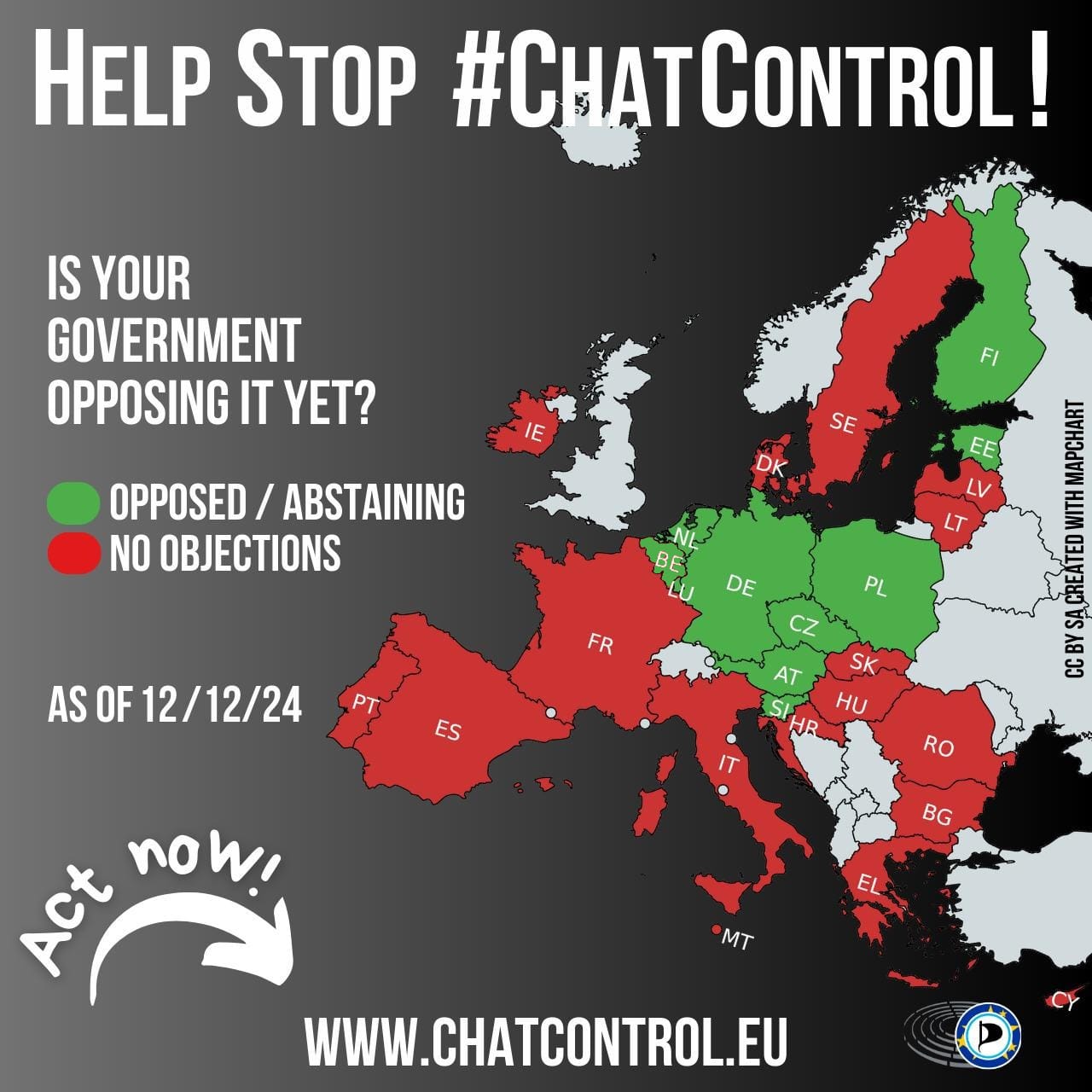Top EU tech regulatory initiatives to watch in 2025 and beyond
Four heavyweight initiatives - the Digital Networks Act, the Digital Fairness Act, updates to Public Procurement Directives, and the much-debated Chat Control - have the potential to radically reshape Europe’s tech landscape, affecting businesses, consumers, and public administrations alike.

The new College of Commissioners has recently officially marked one month in office and despite growing calls for "less red tape" Ursula von der Leyen’s team is rolling up their sleeves for a packed agenda.
Four heavyweight initiatives - the Digital Networks Act, the Digital Fairness Act, updates to Public Procurement Directives, and the much-debated Chat Control - have the potential to radically reshape Europe’s tech landscape, affecting businesses, consumers, and public administrations alike.
Digital networks act - the Commission is asked to look for data-based arguments
In December, Ministers at the Transport, Telecom, and Energy (TTE) Council waded into a heated debate over controversial proposals that could shake up Europe’s digital and telecom sectors.
They cautiously pushed back against the European Commission’s ideas to: 1) tweak IP dispute resolution rules and possibly introduce network fees in the future; 2) impose legacy telecom regulations on digital service providers in the name of a "level playing field"; and 3) loosen competition rules to make it easier for European mobile operators to merge and scale.
The Ministers asked the Commission to investigate the issue further, crunch the data, and uncover solid, evidence-based insights to shape their proposals based on the White Paper on Digital Infrastructure needs.
Impact on consumers: if the arguments are found and the Council of the EU deems them strong enough, Europeans could end up with stifled innovation, even more regulated digital services sector, and a reshaped telecom ecosystem with unclear impact for consumer choice, pricing and quality of services.
Digital fairness act - no action in 2025, preparations continue
The Digital Fairness Act (DFA) is the EU's proposal to enhance consumer protection in digital markets by targeting 'deceptive practices' like dark patterns, addictive designs, and undisclosed influencer marketing to ensure fair and transparent online experiences. The architects of DFA also want to scrutinize personalized advertising and online profiling to protect consumer autonomy and prevent exploitation.
Irish Commissioner McGrath, overseeing the DFA, has hinted that while no major changes are expected in 2025, the groundwork is already being laid for what’s to come.
Potential impact on consumers: changed modus operandi of current e-commerce and digital marketing sectors; personalized advertisements may be discontinued; influencer market will be changed too.
Public procurement directive updates - strong protectionist undertone
French Commissioner Stéphane Séjourné is taking on the task of revising the Public Procurement Directives, aiming to simplify the rules while giving priority to European-made products.
We've long called for change, especially in IT public procurement. For example, most EU countries (aside from Estonia and Finland) still don’t post bids in English, shutting out cross-border IT companies and preventing stronger competition. However, adding more protectionism could make already kafkaesque European public procurement processes even slower and more complex, reducing competition and potentially stalling much-needed digital transformation initiatives.
Potential impact on consumers: even slower and more difficult public procurement processes for IT projects, where European companies would have to be prioritized over others; less competition.
CSAM/Chat Control - or the end of end-to-end encryption in social media platforms
The EU's CSAM proposal, often called Chat Control, aims to combat online child exploitation by scanning private messages on social platforms for Child Sexual Abuse Material (CSAM).
This would effectively end end-to-end encryption, where only the sender and receiver can access the message.
So far, concerns about privacy and security have been raised by Finland, Estonia, Poland, the Benelux countries, Germany, Austria, and Slovenia - while most other Member States remain in favor (see picture below).

Interestingly, one of the critics of CSAM - Poland - has recently taken a notably contrasting approach, proposing an alternative law to protect minors from harmful online content while safeguarding user privacy. The draft focuses on limiting access to pornography by creating a domain register for unprotected content, empowering regulators to oversee compliance, and requiring telecom companies to block non-compliant domains. This initiative aims to create a safer online environment for minors without compromising individual privacy rights.
Potential impact on consumers: no more end-to-end encryption in personal chats; new security vulnerabilities which may be exploited by bad actors.

